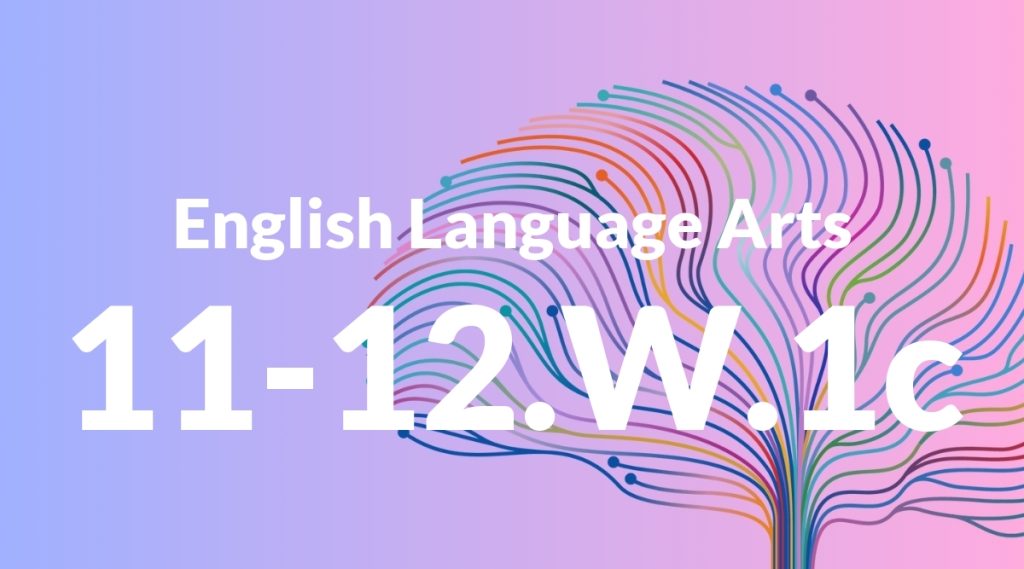Standard: 11-12.W.1 – Write arguments to support claims in an analysis of substantive topics or texts, using valid reasoning and relevant and sufficient evidence.
Grade level: Grade 11-12
Subject: English Language Arts
Domain: Writing
Teacher Overview
This standard emphasizes the importance of writing well-reasoned arguments supported by valid evidence. It is crucial for students to develop these skills as they prepare for college-level writing and critical thinking tasks. Mastery of this standard will enable students to engage thoughtfully with complex texts and issues. Students should be able to construct basic essays with clear thesis statements and supporting paragraphs. They should also be familiar with primary and secondary sources and basic research skills.
Students will progress to more advanced argumentative writing tasks, such as research papers and formal debates, where they will apply their skills in constructing and evaluating complex arguments.
Common Misconception 1
A common misconception is that any opinion can be valid if expressed confidently. This is incorrect because strong arguments require evidence-based support, not just personal belief.
Intervention 1
Use lessons that focus on differentiating between unsupported opinions and evidence-based claims. Provide examples where evidence clearly supports an argument.
Common Misconception 2
Another misconception is that repeating the same piece of evidence in different ways makes an argument stronger. This is incorrect because it leads to redundancy rather than strengthening the argument.
Intervention 2
Encourage students to incorporate diverse types of evidence from multiple sources. Teach them how different pieces of evidence can collectively support a single claim.
Prerequisite Knowledge
Students should have a foundational understanding of basic essay structure, including thesis statements, supporting paragraphs, and conclusions. They should also be familiar with identifying and analyzing primary and secondary sources.
Subsequent Knowledge
After mastering this standard, students will be able to engage in more complex argumentative writing, such as constructing well-reasoned research papers, participating in formal debates, and critically evaluating the arguments presented by others.
Instructional Activities
- Debate on a current event topic
- Writing a persuasive essay on a chosen issue
- Analyzing the argumentative structure of a famous speech
- Peer review sessions to critique argumentative essays
- Research assignments to gather evidence for a claim




